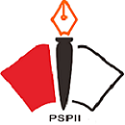KONSEP PEMBENTUKAN KEPRIBADIAN ANAK DALAM PERSPEKTIF AL-QUR’AN (Surat Luqman Ayat 12-19)
Abstract
Keywords
Full Text:
PDFReferences
Departemen Agama. (2009). Al-Qur’an dan Terjemah. Bandung : Dipenogoro.
Departemen Agama RI. (1989). Al-Qur’an Dan Terjemahnya Jakarta : Proyek Pengadaan Kitab Suci Al-Qur’an.
Abdul Hamid Hakim, “As Sulam”, Juz II, As Sa’diyah Putra, Jakarta.
Ahmad, Merimba. (1996). Filsafat Pendidikan Islam. Jakarta : PT. Grapindo Graha.
_______. (1989). Pengantar Filsafat Pendidikan Islam. Bandung : Al-Ma’arif.
Abil Husain Muslim bin al Hajjaj al Qusyairie an Naisaburie, “Shohih Muslim”, Juz: I, Darul Fikri, Beirut, Libanon.
Al Imam Jalaluddin Abdur Rohman bin Abi Bakar as Suyuthie. (1967). “Al Jami’u as Shoghir”, Darul Kaatib al Arobie wat Thoba’ah wan nasyar bil Qohiroh Darul Qolam (Kairo).
Copmac Disc (CD) “Mausu’ah al Hadits as Syarif al Kutubut Tasi’ah”, Sunan Abu dawud, hadits no. 4441.
Departemen Pendidikan Nasional. (2005). Kamus Besar Bahasa Indonesia. Jakarta : Balai Pustaka.
H. M. Arifin. (1992). Filsafat Pendidik Islam. Jakarta : Bumi Aksara. Cet ke-2.
M. Nipan Abdul Hali. (2001). Anak Shoheh Dambaan Keluarga. Yogyakarta : Mitra Pustaka.
T.M Hasbi Ash-shiddiqy. (1964). Tafsir Al-qur’an. Jakarta: Bulan Bintang.
Zakiyah Derajat. (2004). Ilmu Pendidikan Islam. Jakarta: Bumi Aksara.
Zuhairini, dkk. (2008). Filsafat Pendidikan Islam, Jakarta : Bumi Aksara. Ed. I cet ke-4.
DOI: http://dx.doi.org/10.24042/atjpi.v6i2.1517
Refbacks
- There are currently no refbacks.
Copyright (c) 2015 Al-Tadzkiyyah: Jurnal Pendidikan Islam

This work is licensed under a Creative Commons Attribution 4.0 International License.

Al-Tadzkiyyah: Jurnal Pendidikan Islam is licensed under a Creative Commons Attribution 4.0 International License. Copyright © UIN Raden Intan Lampung. All rights reserved.








